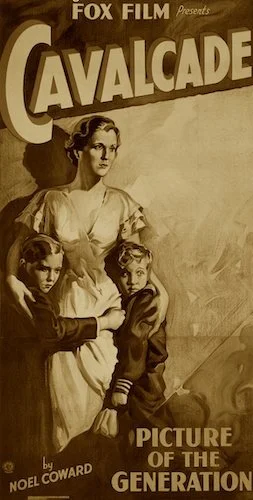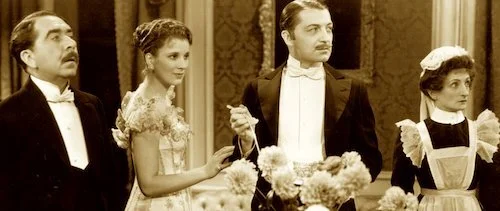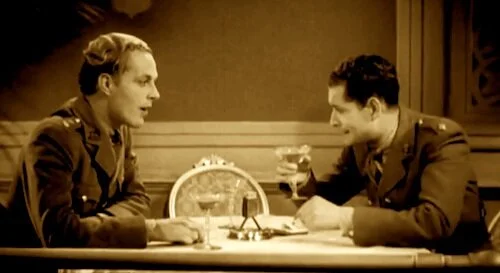Cavalcade
This review is a part of the Best Picture Project: a review of every single Academy Award winner for the Best Picture category. Cavalcade is the sixth Best Picture winner at the 1932/1933 Academy Awards.
We have reached another early Best Picture winner that seems to be a relic of its time; a success that no longer succeeds. Cavalcade in theory is a highly engaging project. The film begins on the cusp of the previous century, as the clock strikes 12 to mark January 1st of 1900. You follow the elite Marryot family into the first third of this new century, seeing as the film was released in 1933 (and the narrative catches up to the present). There isn't much of a solid plot here, rather you view the Marryot family take on important dates in history head on. These include World War I, the Second Boer War, and Queen Victoria's death. Believe it or not, James Cameron's Titanic was not the first Best Picture winner to tackle the tragic sinking of the vessel. Cavalcade did it first.
What probably resonated better back in 1933, is how close in time this film came out in relation to these ground breaking moments in time. We know the Titanic sunk over one hundred years ago. When Cavalcade came out, it was only twenty one years after the disaster. It's fairly difficult to relive that kind of effect now. The main reason why is because Cavalcade invests most of its time in focusing on the relationships the Marryot family has with themselves and with others. A story takes a back seat, and these historical chapters only serve as backdrops. It's like if The English Patient utilized five different shifts in civilization to tell a love story. It's rather unsatisfactory.
The focus on one particular family through time is a nice idea that is not properly executed here.
You only get the dregs of how the Marryot family is affected as well. The Titanic scene, for instance, only reveals that we are on the RMS as soon as the scene ends, as if the horrific accident that killed many passengers is a worthy twist in this film. You don't even see the actual sinking of the Titanic. Afterwards, we jump in time and merely feel the afterthought of what it's like to have a loved one die in a freak event. Maybe back in 1933, this was a bait-and-switch that hits close to home. Now, it feels like a cheap guilt trip for characters that aren't as well developed as director Frank Lloyd may have intended.
It's hard to be completely negative about Cavalcade. The film is an adaptation of a play that was similarly beloved then, and currently shrugged now. The transition from stage to screen likely also helped in favour of this Best Picture win, and it can answer some of the narrative limitations. However, you can't have the Titanic sink on stage, but something for the screen would have sufficed. Even a model ship in a bathtub. What makes Cavalcade age especially poorly is how it relies way too heavily on when it was created. It bottles up all of these early 20th century events, then does very little effort at looking ahead. We don't really grow to care about the Marryot family, despite being in their living corridors fairly often.
Having one core group of people comment on their own modern times works within each scene, but barely as a whole film.
The niches override every other element here. I can honestly say that this film could be remade very well, with many story fixes and the foresight of what actually comes after. Hell, other events can be tossed in to round out the actual century. As it stands right now, Cavalcade was a passionate enough experiment to work back in 1933, but a shoddily built foundation won't let a film last the rest of the century it frames, let alone the rest of time.
Andreas Babiolakis has a Masters degree in Film and Photography Preservation and Collections management from Ryerson University, as well as a Bachelors degree in Cinema Studies from York University. His favourite times of year are the Criterion Collection flash sales and the annual Toronto International Film Festival.






